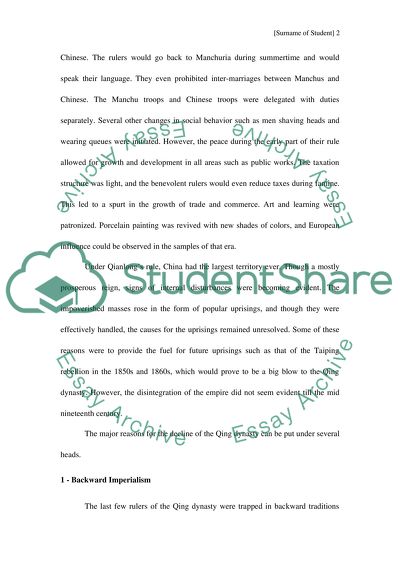Cite this document
(“China's Qing Dynasty and its Collapse Research Paper”, n.d.)
China's Qing Dynasty and its Collapse Research Paper. Retrieved from https://studentshare.org/history/1459879-chinas-qing-dynasty-and-its-collapse
China's Qing Dynasty and its Collapse Research Paper. Retrieved from https://studentshare.org/history/1459879-chinas-qing-dynasty-and-its-collapse
(China'S Qing Dynasty and Its Collapse Research Paper)
China'S Qing Dynasty and Its Collapse Research Paper. https://studentshare.org/history/1459879-chinas-qing-dynasty-and-its-collapse.
China'S Qing Dynasty and Its Collapse Research Paper. https://studentshare.org/history/1459879-chinas-qing-dynasty-and-its-collapse.
“China'S Qing Dynasty and Its Collapse Research Paper”, n.d. https://studentshare.org/history/1459879-chinas-qing-dynasty-and-its-collapse.


